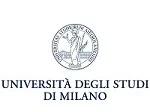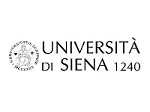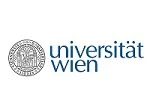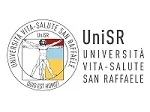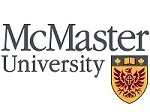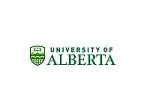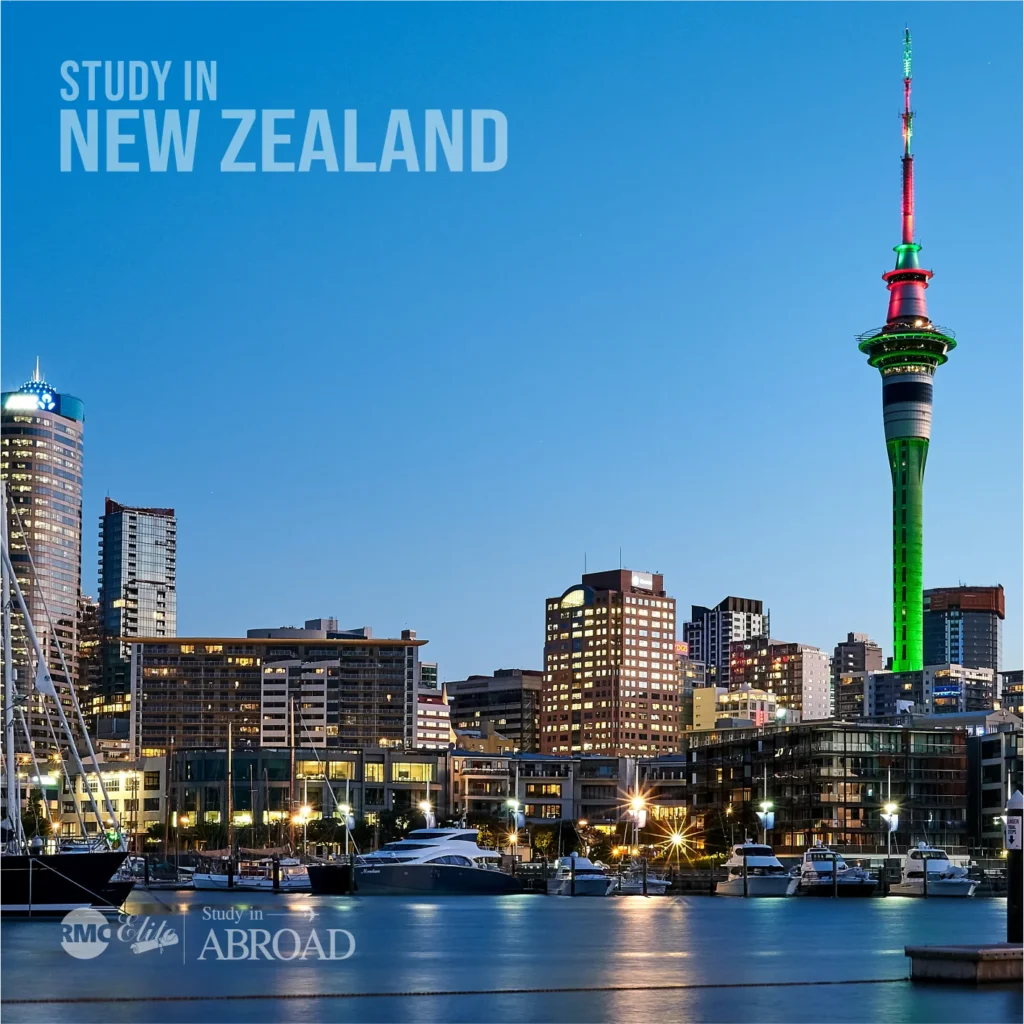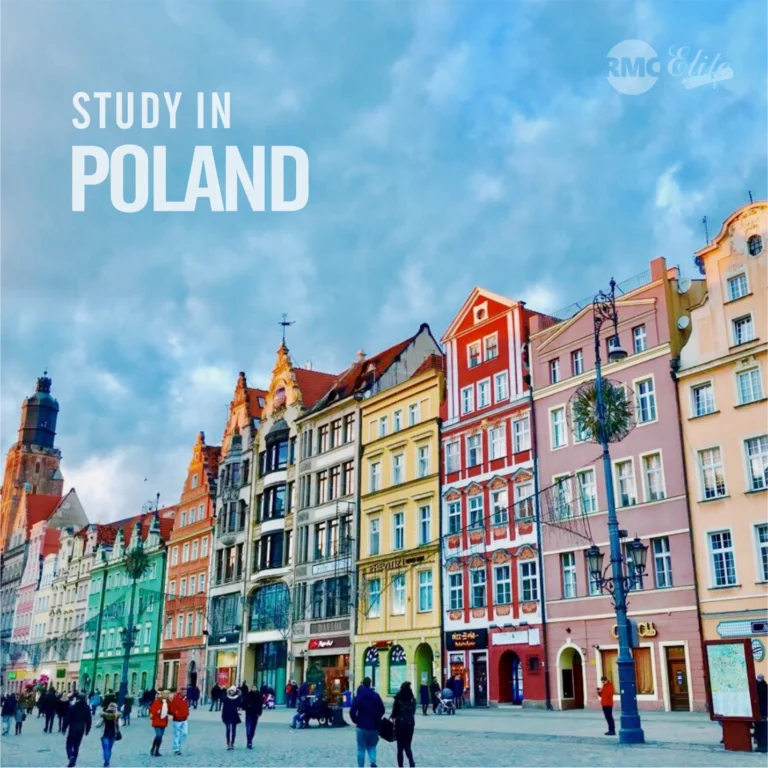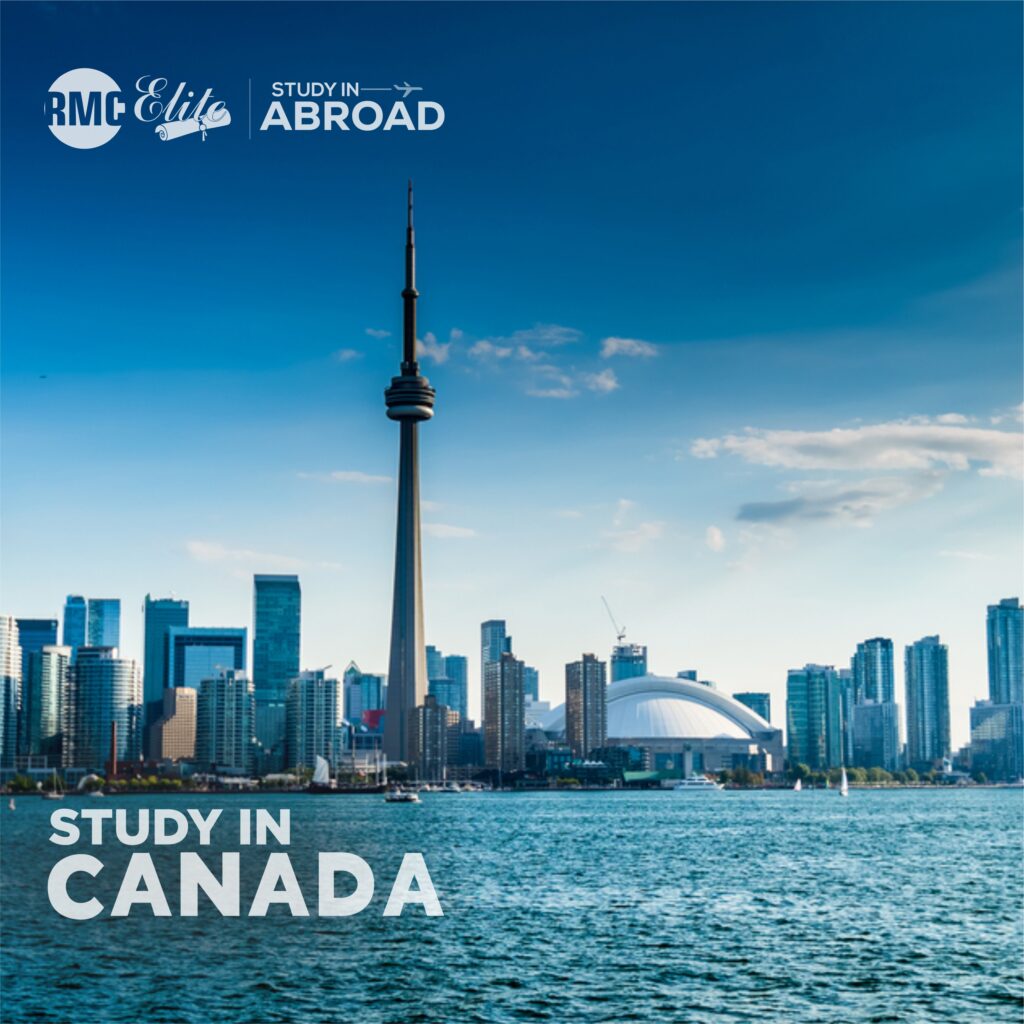
About Canada
Studying in Canada is a popular choice among international students due to its high-quality education, diverse cultural environment, and welcoming immigration policies. Canada offers a wide range of programs and courses for undergraduate and graduate studies in fields such as engineering, business, health sciences, social sciences, and more. The country is home to some of the world’s top-ranked universities and colleges, including the University of Toronto, University of British Columbia, McGill University, and the University of Alberta, among others. In addition, Canada’s multicultural society provides international students with opportunities to learn from and connect with people from different backgrounds, making it an ideal destination for those seeking a diverse and inclusive learning environment. Canada also offers various post-graduation work permit options that enable international students to gain valuable work experience and potentially immigrate to Canada permanently.
Brief Overview of Studying in Canada as an Indian Student
Studying in Canada can be an excellent opportunity for Indian students to gain a high-quality education in a welcoming and multicultural environment.
Canadian universities and colleges are known for providing excellent education and research opportunities. They have a strong reputation for academic excellence and are internationally recognized for their high-quality program.
Canada offers a streamlined immigration process for international students who wish to stay in the country after graduation. This process is relatively easy, and Canada’s government is committed to retaining international talent.
Indian students in Canada are eligible to work part-time on campus and off-campus during their studies, which can help offset the cost of education and gain valuable work experience.
After completing their studies, Indian students can apply for a post-graduation work permit, which allows them to work in Canada for up to three years.
Benefits of Study in Canada
Studying in Canada offers a plethora of benefits for international students. Firstly, Canada is known for providing high-quality education, with its universities and colleges ranking among the best in the world. This translates into a world-class learning experience that prepares students for their future careers. Secondly, Canada is a diverse and multicultural country, offering international students’ exposure to different cultures and perspectives, which enriches their overall experience Additionally, Canada is a safe and peaceful country, providing international students with a sense of security and comfort. Lastly, Canada is home to natural beauty and outdoor recreation, such as national parks, skiing, and hiking, providing students with an opportunity to explore and appreciate Canada’s breath-taking scenery.
Canada Education System
The Canadian education system is well-respected globally for its high quality and comprehensive structure. Here’s an overview of the Canadian education system: Elementary and Secondary Education: Elementary and secondary education in Canada is mandatory for all students and typically lasts for 12 years. Elementary education generally starts at age five or six and lasts for six years, while secondary education is divided into two parts: middle school/junior high (grades 7-9) and high school (grades 10-12). Post-Secondary Education: Post-secondary education in Canada is divided into two categories: college and university. Colleges typically offer diplomas and certificates in vocational and technical programs, while universities offer undergraduate and graduate degrees in a wide range of academic disciplines. Bachelor’s Degrees: Bachelor’s degrees in Canada typically take four years to complete and require students to complete a set number of courses in their chosen field of study. Master’s Degrees: Master’s degrees in Canada typically take one to two years to complete and require students to complete additional coursework, research, and/or a thesis. Doctoral Degrees: Doctoral degrees in Canada typically take three to five years to complete and require students to conduct original research and write a dissertation. Professional Degrees: Professional degrees, such as law, medicine, dentistry, and engineering, are also offered in Canada and typically take three to five years to complete.
Quality of Education in Canada
Canada is globally recognized for its Quality education, which provides students with a comprehensive and rigorous education. Here are some factors that contribute to the quality of education in Canada:
- Canadian universities and colleges have a reputation for high academic standards and offer a wide range of academic programs across different fields of study. This ensures that students receive a comprehensive and well-rounded education.
- Canadian universities and colleges are known for their research-intensive environments, providing students with the opportunity to work with leading researchers and scholars in their field. This not only enriches their education but also provides them with valuable research experience that can be applied to their future careers.
- Canadian universities and colleges attract highly qualified faculty members from around the world, who bring diverse perspectives and expertise to the classroom. This ensures that students receive a top-notch education from the best and brightest minds in their field.
- Canadian universities and colleges invest heavily in state-of-the-art facilities, including research labs, libraries, and technology centres. This ensures that students have access to the latest technologies and resources, which can enhance their learning and research experiences.
- Canada is known for its inclusivity and diversity, and this is reflected in its education system. Canadian universities and colleges are committed to providing a welcoming and inclusive environment for all students, regardless of their background or identity.
Why Study in Canada
Affordable Education: Canadian education is affordable compared to other English-speaking countries, such as the US, UK, and Australia. The cost of Academics and living expenses is relatively low compared to other countries
Safe and Secure: Canada is one of the safest countries in the world, with low crime rates and a welcoming environment. This provides international students with a sense of security and allows them to focus on their studies without any distractions.
Multicultural Environment: Canada is known for its diverse population, so international students feel welcome and at home in Canada. This multicultural environment provides an opportunity for students to learn about different cultures and expand their global perspectives.
Secure Environment: Canada is one of the safest countries in the world, with low crime rates and a stable political environment. This provides international students with a safe and secure learning environment.
Opportunities for Work and Immigration: Canada has a strong economy and a high demand for skilled workers. International students who graduate from Canadian institutions have the opportunity to work in Canada for up to three years after graduation. Moreover, they can apply for permanent residency in Canada through various immigration programs.
High-Quality Education: Canadian universities and colleges are known for their high standards of education and are consistently ranked among the best in the world. The country has a strong focus on research and innovation, and students have access to state-of-the-art facilities and resources.
Career Opportunities
Canada is known for offering a range of career opportunities to students who have completed their education here. The country has a strong and diverse economy, and students can pursue a wide range of careers based on their interests, skills, and qualifications. Here are some of the career opportunities available in Canada:
- Technology: There are several Carrier opportunities Technology field. Canada is known for its thriving tech industry, with many global technology companies having a presence in the country. Students with degrees in computer science, engineering, or other tech-related fields can find exciting career opportunities in this industry.
- Healthcare: Canada has a strong healthcare system, and the demand for healthcare professionals continues to grow. Students with degrees in medicine, nursing, or other healthcare-related fields can pursue careers as doctors, nurses, physiotherapists, and other healthcare professionals.
- Business and Finance: Canada has a strong business and finance sector, with many global companies having their headquarters in the country. Students with degrees in business, finance, or accounting can pursue careers in banking, accounting, investment, and other related fields. Arts and Culture: Canada is home to a thriving arts and culture scene, with many opportunities for students interested in the arts. Students with degrees in art, music, or other creative fields can pursue careers in the film industry, music production, advertising, and other related fields.
Cultural Exposure
Studying in Canada provides students with a unique opportunity to experience and immerse themselves in a new culture. Canada is known for its diversity, inclusivity, and welcoming environment, and students who study here can experience rich cultural exposure. Here are some of how students can experience cultural exposure in Canada:
- Multiculturalism: Canada is a multicultural country, with people from diverse cultural backgrounds living together in harmony. This provides students with the opportunity to learn about different cultures, traditions, and ways of life.
- Festivals and Celebrations: Canada is known for its festivals and celebrations, which take place throughout the year. Students can participate in these events, which provide them with the opportunity to learn about Canadian culture and traditions.
- Food: Canada is known for its diverse cuisine, which reflects the country’s multiculturalism. Students can try different types of food, including traditional Canadian dishes and food from different cultural backgrounds.
- Language Learning: Canada is a bilingual country, with English and French being the official languages. Studying in Canada provides students with the opportunity to learn and improve their language skills, which can enhance their communication skills and provide them with a deeper understanding of different cultures.
- Homestays and Cultural Exchanges: Many Canadian universities and colleges offer homestay programs, where students can live with a Canadian family and experience Canadian culture first-hand. Additionally, many universities and colleges offer cultural exchange programs, which allow students to study abroad and experience different cultures.
Eligibility and Admission Requirements for Indian Students
Indian students who wish to study in Canada must meet certain eligibility and admission requirements. Firstly, they must have completed their secondary education, which is equivalent to Canadian grade 12, and obtained a valid school leaving certificate. They must also meet the language proficiency requirements by taking English language proficiency tests such as TOEFL or IELTS, and score the minimum required scores. Additionally, they must have a valid study permit, which can be obtained by applying through the Canadian government website or by submitting an application to a Canadian visa office in India. Admissions requirements vary by program and institution.
Academic Requirements to Study in Canada as an Indian Student
The academic requirements for Indian students to study in Canada. Secondary Education: International students must have completed their secondary education (equivalent to Canadian Grade 12) with good grades.
- Post-Secondary Education: For graduate programs, international students must have completed a bachelor’s degree or its equivalent from a recognized institution. Some programs may have additional requirements such as specific prerequisite courses or a minimum GPA.
- Standardized Tests: Some programs may require international students to take standardized tests such as the GRE, GMAT, or MCAT, depending on their chosen field of study.
English Language Proficiency Requirements
There are two English Language Proficiency test are available for Indian Students.
- IELTS: The International English Language Testing System (IELTS) is one of the most common English language proficiency tests accepted by Canadian universities and colleges. Most institutions require a minimum overall score of 6.5 to 7.5, depending on the program of study.
- TOEFL: The Test of English as a Foreign Language (TOEFL) is another commonly accepted English language proficiency test. Most institutions require a minimum score of 80 to 100 on the internet-based test (iBT), depending on the program of study.
Application Process and Deadlines
For Admission in Canada, you have to follow the Application process and make sure to check the Deadlines.
- Submit Application: Once you have selected the institutions and programs you want to apply to, you can submit your application through their online application portal or centralized application service, such as the Ontario Universities Application Centre (OUAC) or the Apply-Alberta system.
- Provide Required Documents: Along with your application, you will be required to submit various documents, such as transcripts, English language proficiency test scores, letters of recommendation, and essays. The specific documents required may vary depending on the institution and program of study.
- Pay Application Fees: Most institutions charge an application fee, which must be paid when you submit your application. The fee may vary depending on the institution and program of study.
- Deadlines: The application deadline for Canadian universities and colleges may vary depending on the institution and program of study. Some programs have earlier deadlines than others, so it is important to check the specific deadlines for the programs you are interested in. Generally, application deadlines for international students are between January and May for the September intake.
Visa Requirements
For Indian students, there are some Visa requirements to submit.
- Apply for a Study Permit: International students must apply for a study permit through the Immigration, Refugees, and Citizenship Canada (IRCC) website. The application requires personal information, academic details, and proof of financial support.
- Provide Supporting Documents: Along with the study permit application, international students must provide supporting documents, including a letter of acceptance from a designated learning institution (DLI), a valid passport or travel document, proof of financial support, and language proficiency test scores.
- Pay the Application Fee: International students must pay a non-refundable application fee when submitting their study permit application.
- Biometrics: International students from certain countries may need to provide biometric information, such as fingerprints and a photograph, as part of the study permit application process.
- Wait for Processing: The processing time for a study permit application varies depending on the applicant’s country of origin and the time of year. It is important to apply for the study permit well before the program’s intended start date.
- Travel to Canada: Once the study permit application is approved, international students can travel to Canada to begin their studies.
Top Universities in Canada for Indian Students
Canada is home to some of the world’s top-ranked universities, making it a popular destination for Indian students seeking high-quality education. Among the top universities in Canada for Indian students.
Top Universities and Ranking
| Universities Name | QS World University Rankings 2022 |
| University of Toronto | 18th |
| University of British Columbia | 35th |
| McGill University | 54th |
| University of Waterloo | 109th |
| York University | 95th |
| University of Alberta | 136th |
| University of Ottawa | 324th |
Campus life and Facilities
Canada has a diverse and welcoming Campus culture, with a range of facilities and services to help students succeed academically and socially.
- Libraries: Canadian universities have extensive libraries that offer a range of resources, including books, journals, research databases, and online resources. Libraries often have study spaces, group rooms, and quiet areas for students to study and work.
- Student Housing: Canadian universities typically offer on-campus and off-campus housing options for students. On-campus housing can include dormitories, apartments, and suites, and is a great way to meet other students and get involved in campus life.
- Sports and Recreation: Most universities in Canada have extensive sports and recreation facilities, including fitness centres, swimming pools, and sports fields. These facilities are often available to students at a reduced cost or for free.
- Clubs and Organizations: Canadian universities have a vibrant student life, with a wide range of clubs and organizations that cater to different interests and hobbies. Joining a club or organization is a great way to meet other students and get involved in campus life.
- Career Services: Canadian universities typically offer career services that can help students with job search strategies resume writing, interview preparation, and networking opportunities. These services can help students transition from university to the workforce.
- Student Health and Wellness: Canadian universities have extensive student health and wellness services, including counselling, mental health services, and health clinics. These services are often available to students at a reduced cost or for free.
The Best Courses to Study in Canada for Indian Students
- Computer Science and Information Technology: Canada has a thriving tech industry and is home to many top technology companies. Studying computer science or IT in Canada can provide you with the knowledge and skills to succeed in the industry.
- Business and Management: Canada is a hub for business and entrepreneurship, and studying business or management can provide you with the knowledge and skills to succeed in various industries.
- Engineering: Canada has a strong engineering industry and is home to many leading engineering companies. Studying engineering in Canada can provide you with the knowledge and skills to succeed in this industry.
- Health Sciences: Canada has a world-class healthcare system, and studying health sciences can provide you with the knowledge and skills to work in healthcare or pursue further education in this field.
- Environmental Science: Canada is known for its natural beauty and is committed to environmental sustainability. Studying environmental science in Canada can provide you with the knowledge and skills to work in this field.
Financial Aid and Scholarship for Indian Students
Financial aid and scholarships are important resources for Indian students who wish to study abroad in countries like the United States, Canada, and the United Kingdom. Many universities and organizations in these countries offer scholarships and other forms of financial assistance to international students, including those from India. These scholarships can cover tuition fees, living expenses, and other costs associated with studying abroad. Some scholarships are need-based, while others are merit-based and awarded based on academic or extracurricular achievements. Indian students can also explore scholarship opportunities offered by the Indian government
Types of Financial Aid Available
There are mainly Four Types of Financial Aid available.
- Scholarships: Scholarships are financial awards that are given to students based on academic merit, financial need, or other criteria. Scholarships can be offered by the Canadian government, Canadian universities, and other organizations.
- Bursaries: Bursaries are similar to scholarships in that they are financial awards given to students who demonstrate financial need. Bursaries may be offered by the Canadian government, Canadian universities, and other organizations.
- Loans: Loans are a type of financial aid that must be repaid with interest. Loans may be offered by the Canadian government, Canadian financial institutions, or financial institutions in the student’s home country.
- Work-study programs: Work-study programs allow students to work part-time while studying in Canada. Students may be able to find work on campus or in the local community.
Scholarships for Indian Students
Here you can find the scholarships to study in Canada. Canada-India Research Centre of Excellence (IC-IMPACTS) Scholarships: These scholarships are available to Indian students who are pursuing graduate studies in Canada in the fields of infrastructure, health, and safety. Ontario Trillium Scholarship: This scholarship is available to international students, including Indian students, who are pursuing a Ph.D. in Ontario. The scholarship covers tuition fees, living expenses, and research expenses. Vanier Canada Graduate Scholarship: This scholarship is available to international students, including Indian students, who are pursuing a doctoral degree in Canada in the fields of natural sciences, social sciences, and engineering. Minacs Global Ink Research Internship: This program provides funding for international undergraduate students, including Indian students, to conduct research internships in Canada. Canada Graduate Scholarships: These scholarships are available to international students, including Indian students, who are pursuing a Master’s or Ph.D. degree in Canada in the fields of health, natural sciences, and social sciences.
Living in Canada as an Indian Student
Living in Canada as an Indian student can be a great experience, but it can also be challenging. Students need to be prepared for the colder climate, the high cost of living in some areas, and cultural differences. However, there are many resources available to help international students adjust, including on-campus support services and student organizations. It’s important to plan and budget carefully to make the most of the experience.
Accommodation Option
There are several Accommodation options available for international students in Canada, including:
- On-campus housing: Many Canadian universities offer on-campus housing for international students, such as dormitories, apartments, or shared houses. This can be a convenient and affordable option for students who want to live close to campus.
- Off-campus housing: Students may also choose to live off-campus in an apartment, shared house, or homestay. Off-campus housing can offer more independence and flexibility but may require more research and budgeting.
- Homestays: Homestays are arrangements where international students live with a Canadian host family. This can be a great way to learn about Canadian culture and improve language skills.
Cost Of Living
- Transportation: Public transportation varies by city, but a monthly pass can range from $80 to $120.
- Health insurance: International students are required to have health insurance in Canada. The cost of health insurance can vary, but students can expect to pay between $600 to $1,000 per year.
- Books and supplies: The cost of books and supplies can vary depending on the program, but students should budget approximately $1,000 per year.
Food and Dining Option
Canada is a diverse country with a wide range of food and drink options. Here are some popular options that international students may enjoy:
- Poutine: This classic Canadian dish consists of French fries, cheese curds, and gravy.
- Tim Hortons: This famous coffee and doughnut chain is a Canadian staple and can be found in most cities.
- Maple syrup: Canada is known for its maple syrup, which is often used as a sweetener for pancakes, waffles, and other breakfast dishes.
- Pubs and breweries: Canada has a thriving pub and brewery scene, with many cities offering local beers and pub-style food.
- International cuisine: Canada is a multicultural country, and many cities have a wide range of international food options, including Indian, Chinese, Korean, and Italian.
Visa Transportation and Travel
Here you can find the Visa Transportation and Travel charges
- Canadian student visa: The cost of a Canadian study permit (student visa) is CAD 150 (approximately 8,300 INR) per applicant. Students may also need to pay biometric fees, which can range from CAD 85 to CAD 170 (approximately 4,700 to 9,400 INR).
- Airfare: The cost of airfare to Canada can vary depending on the time of year, airline, and departure city. One-way flights from India to Canada can cost between CAD 500 to CAD 1,500 (approximately 28,000 to 83,000 INR).
Working While Study in Canada
Working while studying in Canada is a great way for international students to gain valuable work experience and supplement their income. As an international student in Canada, you are allowed to work up to 20 hours per week during the academic year and full-time during scheduled breaks, such as summer and winter holidays. Working on campus is the easiest option for students as it does not require a work permit, and the jobs are often conveniently located. Off-campus work requires a work permit, which can be obtained through the Canadian government.
Employment and Job Opportunities After Graduation
Canada has a strong and growing economy with a diverse range of industries, providing international students with a range of job opportunities after graduation. Some of the popular fields of work for international students include healthcare, technology, finance, and engineering.
Post-Study Work Visa
Canada offers a post-graduation work permit (PGWP) to international students who have completed their studies at a designated learning institution in Canada. The PGWP allows students to work in Canada for up to three years after graduation and does not require a job offer to be eligible. To be eligible for a PGWP, Indian students must have completed a program of study that is at least 8 months in duration and at a designated learning institution in Canada. They must also apply for the work permit within 180 days of receiving their final grades and have a valid study permit at the time of application.
Job Market in the Canada for Indian Students
Canada’s job market is diverse and offers a range of opportunities for Indian students. Some of the popular industries for international students include healthcare, technology, finance, engineering, and hospitality. There are several ways for Indian students to explore job opportunities in Canada. Networking and building professional connections can be valuable for finding job opportunities. Canadian job boards such as Indeed, Monster, and LinkedIn are also great resources for job searching. International students who have completed their studies in Canada may be eligible for a post-graduation work permit, which allows them to work in Canada for up to three years after graduation. This can provide a valuable opportunity for Indian students to gain work experience and potentially transition to permanent residency.
Tips to Finding Employment After Graduation
Here are some tips for finding employment after graduation in Canada:
- Start networking early: Start building your professional network as soon as possible. Attend career fairs, join professional organizations, and attend industry events to meet professionals in your field of study.
- Research potential employers: Do your research on companies and industries that interest you. Look for companies that have a track record of hiring international students.
- Tailor your resume and cover letter: Customize your resume and cover letter to highlight your skills and experience that are relevant to the job you are applying for.
- Apply for internships and co-op programs: Many companies in Canada offer internships and co-op programs for recent graduates. These programs provide valuable work experience and can lead to a full-time job offer.
- Consider volunteer work: Volunteering can provide valuable work experience and help you build your professional network. Look for volunteer opportunities in your field of study or with organizations that interest you.
- Use online job boards: Use Canadian job boards such as Indeed, Monster, and LinkedIn to search for job opportunities. Be sure to create a professional online presence on LinkedIn and other social media platforms.
Admission Process to Study in Canada for Indian Student
The admission process to study in Canada for Indian students typically involves the following steps:
- Choose your program and university: The first step is to decide on the program and university that you want to apply to. You can research universities and programs online or attend education fairs and information sessions.
- Check the admission requirements: Each university and program have its admission requirements, which may include academic qualifications, English language proficiency, and standardized test scores. Make sure you meet the requirements before applying.
- Submit your application: You can apply to Canadian universities online or by mail. You will need to provide personal and academic information, as well as transcripts, essays, letters of recommendation, and test scores, as required.
- Pay the application fee: Most universities require an application fee, which can range from CAD 50 to CAD 150.
- Wait for the admission decision: Once you have submitted your application, you will have to wait for the university’s decision. It may take several weeks or months for the university to process your application and make a decision.
- Accept the offer: If you receive an offer of admission, you will need to accept it and pay a deposit to secure your place in the program.
- Apply for a study permit: Indian students need a study permit to study in Canada. You can apply for a study permit online or by mail. You will need to provide proof of acceptance from a Canadian university, as well as financial documents, a medical exam, and a police certificate.
Why Take Admission Through RMC Elite Consultancy?
RMC Elite consultancies can provide valuable support and guidance for Students looking to study in Canada. Some of the services that elite consultancies may offer include:
- Assistance with the application process: Elite consultancies can help students navigate the application process and ensure that they submit all required documentation on time.
- Information on admission requirements: Elite consultancies can provide detailed information on admission requirements, including academic requirements, English language proficiency requirements, and visa requirements.
- Guidance on choosing a university and program: Elite consultancies can provide students with information on different universities and programs in Canada, including their academic rankings and reputation.
- Support with visa applications: Elite consultancies can provide guidance on visa applications and assist with the visa application process.
- Advice on scholarships and financial aid: Elite consultancies can provide information on scholarships and financial aid options for international students.

